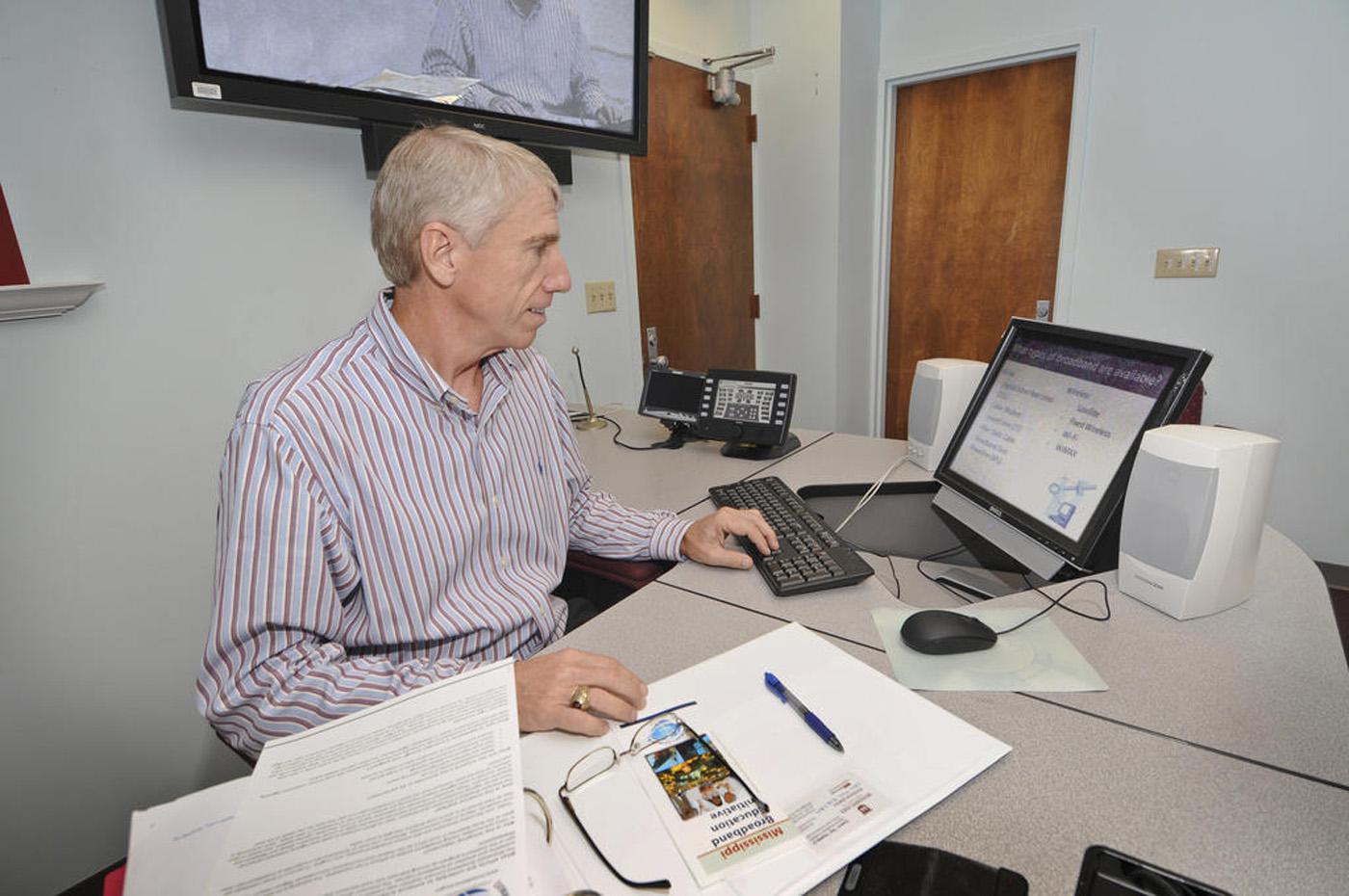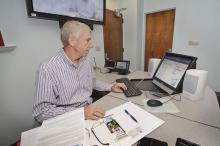Information Possibly Outdated
The information presented on this page was originally released on September 28, 2011. It may not be outdated, but please search our site for more current information. If you plan to quote or reference this information in a publication, please check with the Extension specialist or author before proceeding.
Broadband initiative to provide opportunities
By Karen Templeton
MSU Ag Communications
MISSISSIPPI STATE – A new broadband initiative seeks to help Mississippians connect to new technology, increasing access to a wide range of community and economic development opportunities.
Broadband refers to devices that provide greater telecommunications connectivity than standard devices, such as dial-up. Broadband allows quick and efficient Web browsing, which can increase the productivity of businesses, and increase access to educational resources and health care services. Broadband is available through local telephone companies, cable providers, and some wireless networks.
A large portion of the state’s population still lives in small towns and rural areas, and it can be difficult for private companies to justify the expense of supplying high-speed Internet access to these hard-to-reach places.
In 2009, Gov. Haley Barbour made broadband connectivity for the state a priority and spearheaded the creation of the Mississippi Broadband Connect Coalition. The MBCC is currently developing a comprehensive statewide plan to increase the availability of broadband and improve the digital literacy of Mississippians.
As part of the state’s comprehensive broadband initiative, the Mississippi State University Extension Service, along with the Southern Rural Development Center, located on the MSU campus, have partnered with the Office of the Governor to help communities improve their access to and use of broadband services. The Extension Broadband Education and Adoption Team, called e-BEAT, is made up of state- and regionally-based Extension educators. The project is supported by the Office of the Governor with funds made possible by the American Recovery and Reinvestment Act.
“We are launching this important initiative by organizing citizen-based advisory councils in six regions of the state to guide the education and technical assistance activities of e-BEAT,” said Bo Beaulieu, Southern Rural Development Center director and project director. “These advisory councils and Extension educators make it possible for e-BEAT to implement broadband adoption strategies that respond to the unique needs of the households, businesses, local governments and other key institutions in each region.”
Representatives from SRDC, MSU’s Computer Application and Services and the School of Human Sciences are part of e-BEAT. In addition, two regional coordinators are located in Extension offices in Newton and DeSoto counties, and four coordinators are housed at MSU’s Research and Extension Centers in Biloxi, Verona, Raymond and Stoneville. The e-BEAT initiative officially launched in July 2011 and will continue through December 2014.
“We are going to work with key people in the community to help them organize efforts to improve the use and application of broadband in their areas,” said Chip Templeton, Extension broadband coordinator for the Northeast region of the state. “But in some instances, we may need to start with the basics because some people and businesses may not even own computers. We’ll help improve awareness of how connecting to the World Wide Web can benefit people and their communities.”
Beaulieu said to better understand broadband use in Mississippi, e-BEAT is completing a statewide broadband survey of Mississippi households. By knowing who uses broadband and in what ways, and by understanding the impediments to adoption, e-BEAT, the Mississippi Broadband Connect Coalition, and the regional advisory councils can work better together to help overcome these barriers.
“Having good broadband connections allows families and small businesses to gain access to helpful services,” Templeton said. “It can help put people in touch with educational and health resources. We are tremendously excited to help Mississippians become broadband complete.”
Gary Jackson, director of MSU’s Extension Service, feels the initiative will help educate the public about the importance of adopting new technology.
“Extension is dedicated to developing new informational technology to help Mississippians gain access to the information highway,” Jackson said. “I’m excited about what this new initiative is going to do and how it will complement our instructional technology efforts.”
Beaulieu said e-BEAT will work not only to improve the lives of individuals but also to offer communities new ways of strengthening their local economies.
“Helping Mississippi communities improve their access to broadband has the potential to generate a number of positive impacts. For example, high-speed Internet access has been shown to improve workforce productivity and allows businesses to market their products on a greater scale,” he said. “People will have access to resources that will help them grow new businesses or expand existing enterprises, and that is important in today’s global marketplace.”
For more information on the broadband initiative, visit http://www.broadband.ms.gov.





